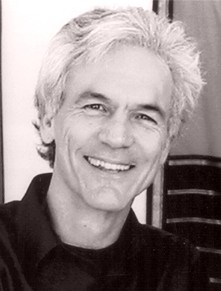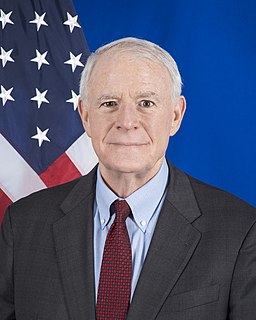A Quote by Urie Bronfenbrenner
Witness the American ideal: the Self-Made Man. But there is no such person. If we can stand on our own two feet, it is because others have raised us up. If, as adults, we can lay claim to competence and compassion, it only means that other human beings have been willing and enabled to commit their competence and compassion to us--through infancy, childhood, and adolescence, right up to this very moment.
Related Quotes
The human being is that space in which the comprehensive compassion that pervades the universe from the very beginning now begins to surface --within consciousness. (As compared with the natural displays of compassion by other creatures that is not necessarily 'within consciousness. ') That's the only difference. We didn't create compassion, but it's flowing through us-or it could. The phase change that we're in seems, to me, to depend upon that comprehensive compassion unfurling in the human species.
The first beneficiary of compassion is always oneself. When compassion, or warmheartedness, arises in us and our focus shifts away from our own narrow self-interest, it is as if we open an inner door. It reduces fear, boosts confidence and brings us inner strength. By reducing distrust, it opens us to others and brings us a sense of connection to others, and sense of purpose and meaning in life.
The essence of love and compassion is understanding, the ability to recognize the physical, material, and psychological suffering of others, to put ourselves "inside the skin" of the other. We "go inside" their body, feelings, and mental formations, and witness for ourselves their suffering. Shallow observation as an outsider is not enough to see their suffering. We must become one with the subject of our observation. When we are in contact with another's suffering, a feeling of compassion is born in us. Compassion means, literally, "to suffer with."
Compassion is something we can count on. Even if we face economic problems and our fortunes decline, we can still share our compassion with our fellow human beings. National and global economies are subject to many ups and downs, but through them all we can retain a compassionate attitude that will carry us through.
Our parents deserve our honor and respect for giving us life itself. Beyond this they almost always made countless sacrifices as they cared for and nurtured us through our infancy and childhood, provided us with the necessities of life, and nursed us through physical illnesses and the emotional stresses of growing up.
It’s in our interest to take care of others. Self-centrednes s is opposed to basic human nature. In our own interest as human beings we need to pay attention to our inner values. Sometimes people think compassion is only of help to others, while we get no benefit. This is a mistake. When you concern yourself with others, you naturally develop a sense of self-confidence . To help others takes courage and inner strength.
A man of understanding, a man who understands himself and others, always feels compassion. Even if somebody is an enemy you have compassion toward him because a man of understanding can understand the viewpoint of the other also. He knows why the other feels as he feels, he knows why the other is angry, because he knows his own self, and in knowing that, he has known all others.
Compassion asks us to go where it hurts, to enter into the places of pain, to share in brokenness, fear, confusion, and anguish. Compassion challenges us to cry out with those in misery, to mourn with those who are lonely, to weep with those in tears. Compassion requires us to be weak with the weak, vulnerable with the vulnerable, and powerless with the powerless. Compassion means full immersion in the condition of being human.
But compassion is a deeper thing that waits beyond the tension of choosing sides. Compassion, in practice, does not require us to give up the truth of what we feel or the truth of our reality. Nor does it allow us to minimize the humanity of those who hurt us. Rather, we are asked to know ourselves enough that we can stay open to the truth of others, even when their truth or their inability to live up to their truth has hurt us.
Let us cultivate love and compassion, both of which give life true meaning. This is the religion I preach. It is simple. Its temple is the heart. Its teaching is love and compassion. Its moral values are loving and respecting others, whoever they may be. Whether one is a lay person or a monastic, we have no other option if we wish to survive in this world.
As we live our human lives, let us be like the water. Let us be conscious of the flow. Let us not forget the great ground of being that draws us on through life. Let us live in a knowing hope, aware that all being is in transition, that all movement is back to the source. Let us treat those around us as reminders of our illusionary individuality. We know that they are us and we are them connected in ways we cannot fathom. Let us grow in compassion for all beings, for they share our journey.
Human beings are not our enemy. Our enemy is not the other person. Our enemy is the violence, ignorance, and injustice in us and in the other person. When we are armed with compassion and understanding, we fight not against other people, but against the tendency to invade, to dominate, and to exploit.
Compassion has been advocated by all the great faiths because it has been found to be the safest and surest means of attaining enlightenment. It dethrones the ego from the center of our lives and puts others there, breaking down the carapace of the selfishness that holds us back from an experience of the sacred. And it gives us ecstasy, broadening our perspectives and giving us a larger, enhanced vision.
A person is a person through other persons. None of us comes into the world fully formed. We would not know how to think, or walk, or speak, or behave as human beings unless we learned it from other human beings. We need other human beings in order to be human. I am because other people are. A person is entitled to a stable community life, and the first of these communities is the family.


































